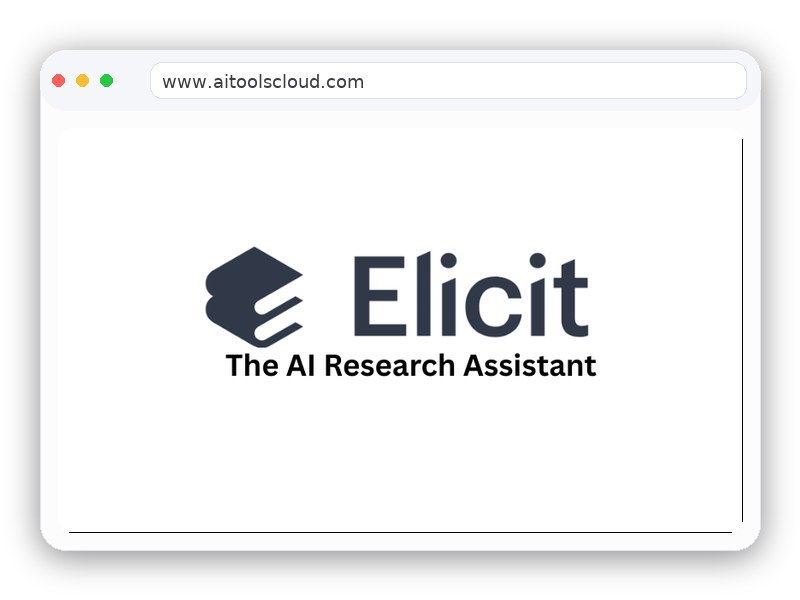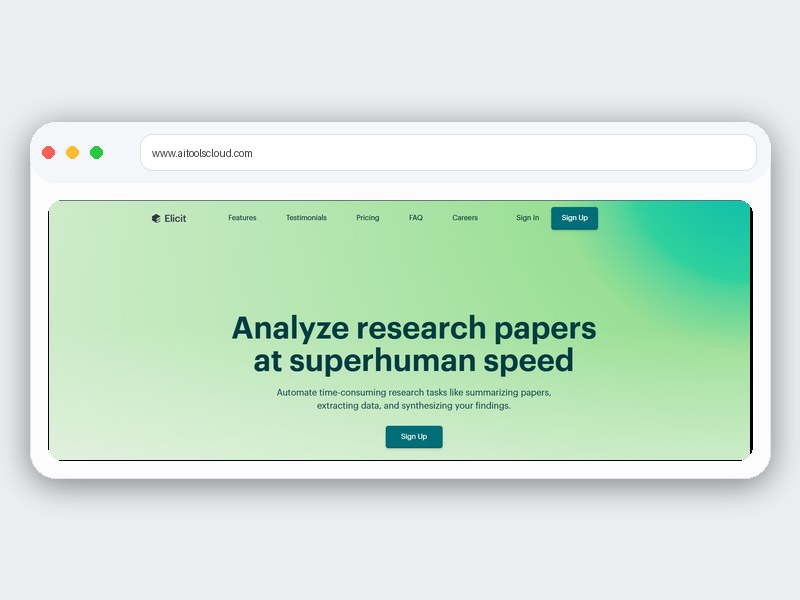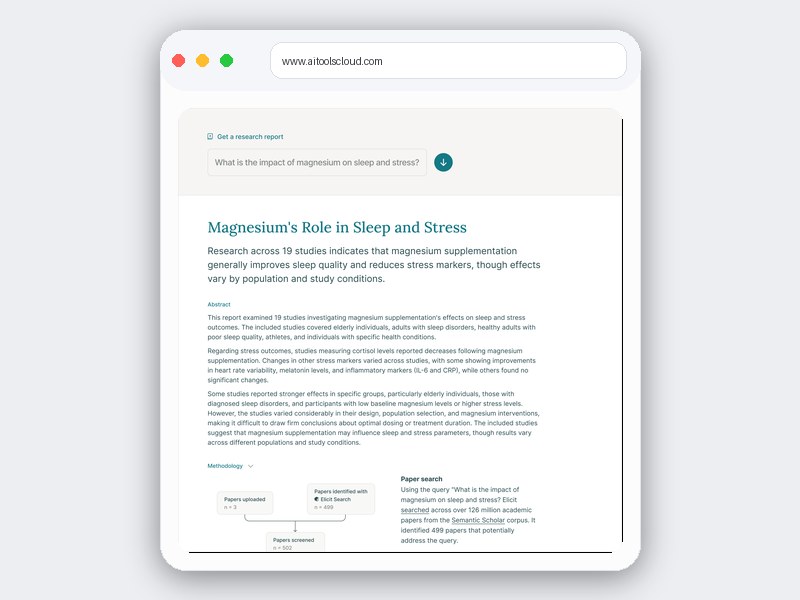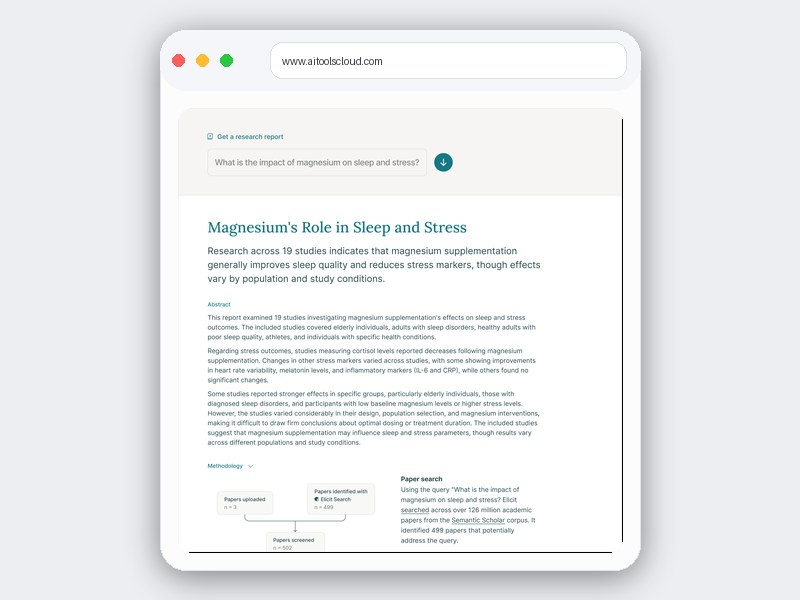Elicit is like having a super-smart research assistant who reads scientific papers for you. Instead of spending hours digging through databases, you just ask it questions in plain English (like "What studies exist on gut bacteria and depression?"), and it finds relevant papers and pulls out the key stuff you need. It solves the biggest headaches researchers face: finding niche papers that traditional databases miss through semantic search, avoiding endless abstract-reading with one-sentence summaries, eliminating tedious manual data extraction by auto-generating tables, and cutting systematic review timelines by over 60% through automation.
PhD students use it to discover overlooked papers and research gaps, clinical researchers pull data from dozens of trials in minutes instead of weeks, and lab teams build competitor databases in days rather than months. As one user put it: "It's like having 10 grad students working for you, but they don't sleep or make mistakes." Essentially, Elicit does the grunt work of deep research for anyone drowning in papers who needs to find hidden gems, extract precise data, or speed up serious projects.



